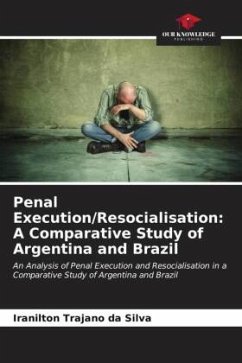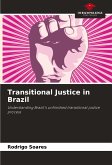The purpose of this research, which aims to be published, was to address the problems facing the current Brazilian and Argentinian prison systems, making a comparative analysis and identifying the state's failure to seek efficient projects and social policies to reduce crime as the main cause of the disorder in the prison system, whose policies, when not applied to combat delinquency, are taken more seriously during the execution of the sentence imposed, so that the main objective can be achieved, which is the recovery of the segregated person through resocialisation, a proposal that is aimed at both Brazil and Argentina, which despite having a much smaller prison population than Brazil, has serious structural problems. This confirms that in the circumstances of the Argentinian and Brazilian states' failure to enforce prisoners' legal rights and guarantees, the possibility of social reintegration is negative.
Bitte wählen Sie Ihr Anliegen aus.
Rechnungen
Retourenschein anfordern
Bestellstatus
Storno








